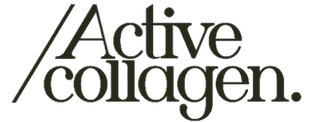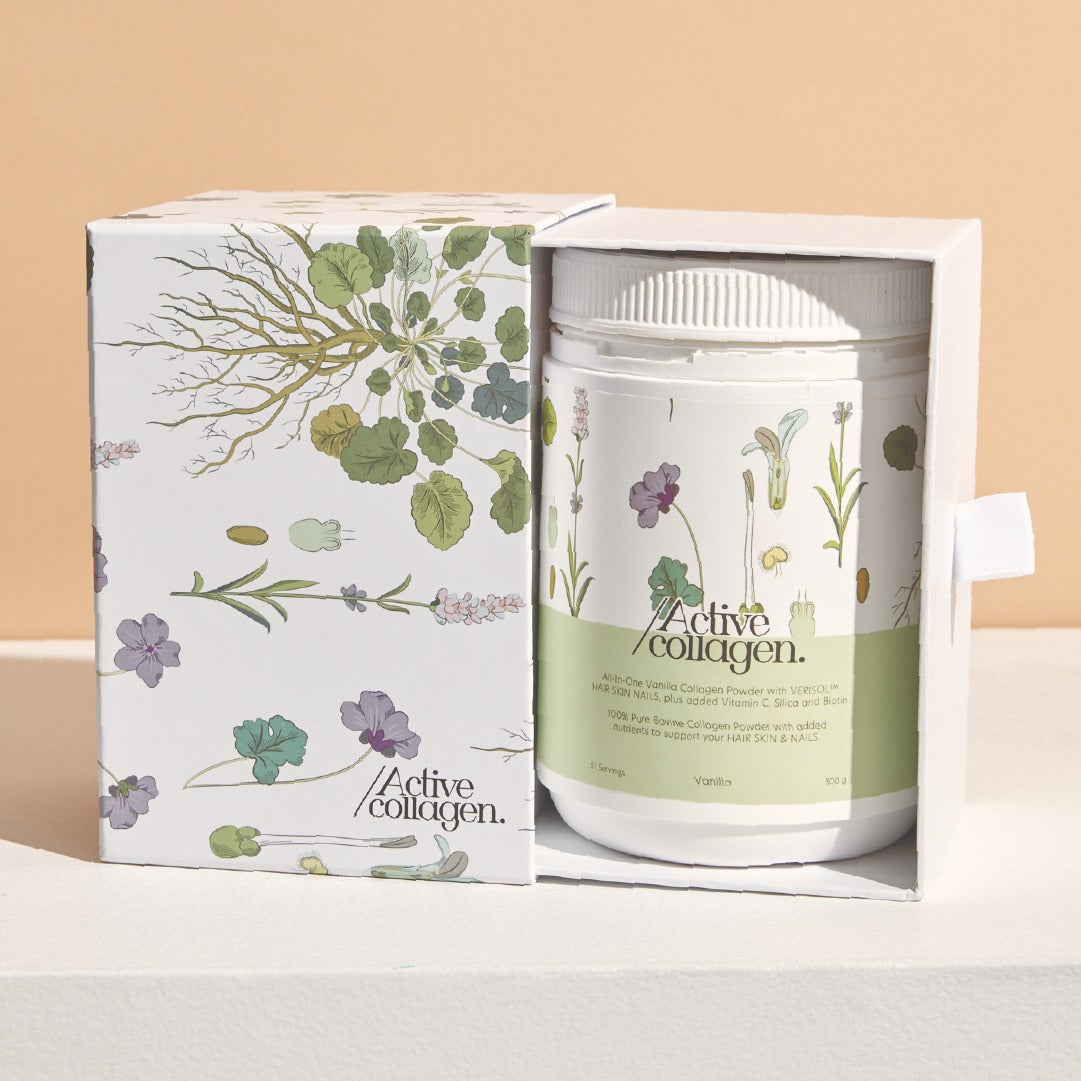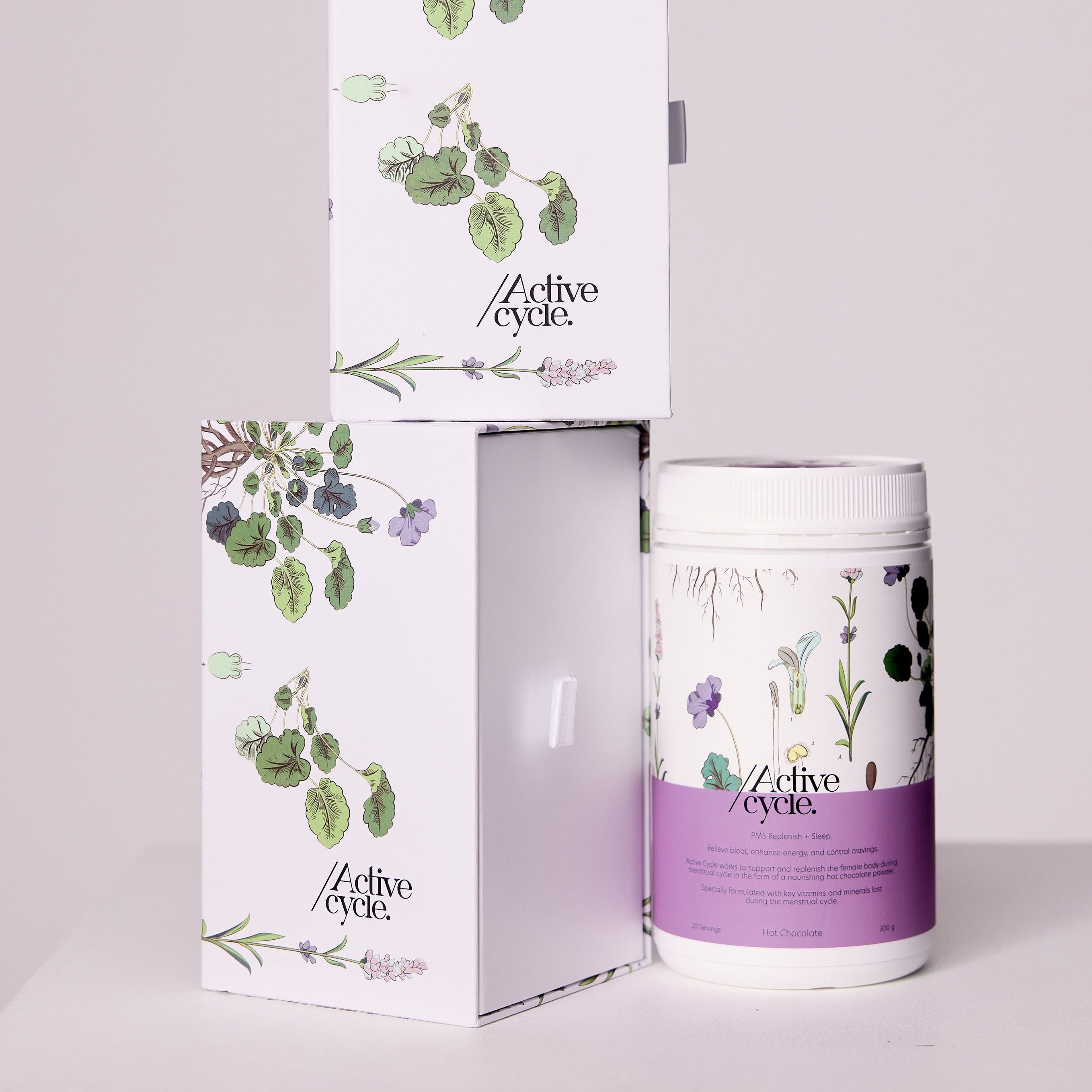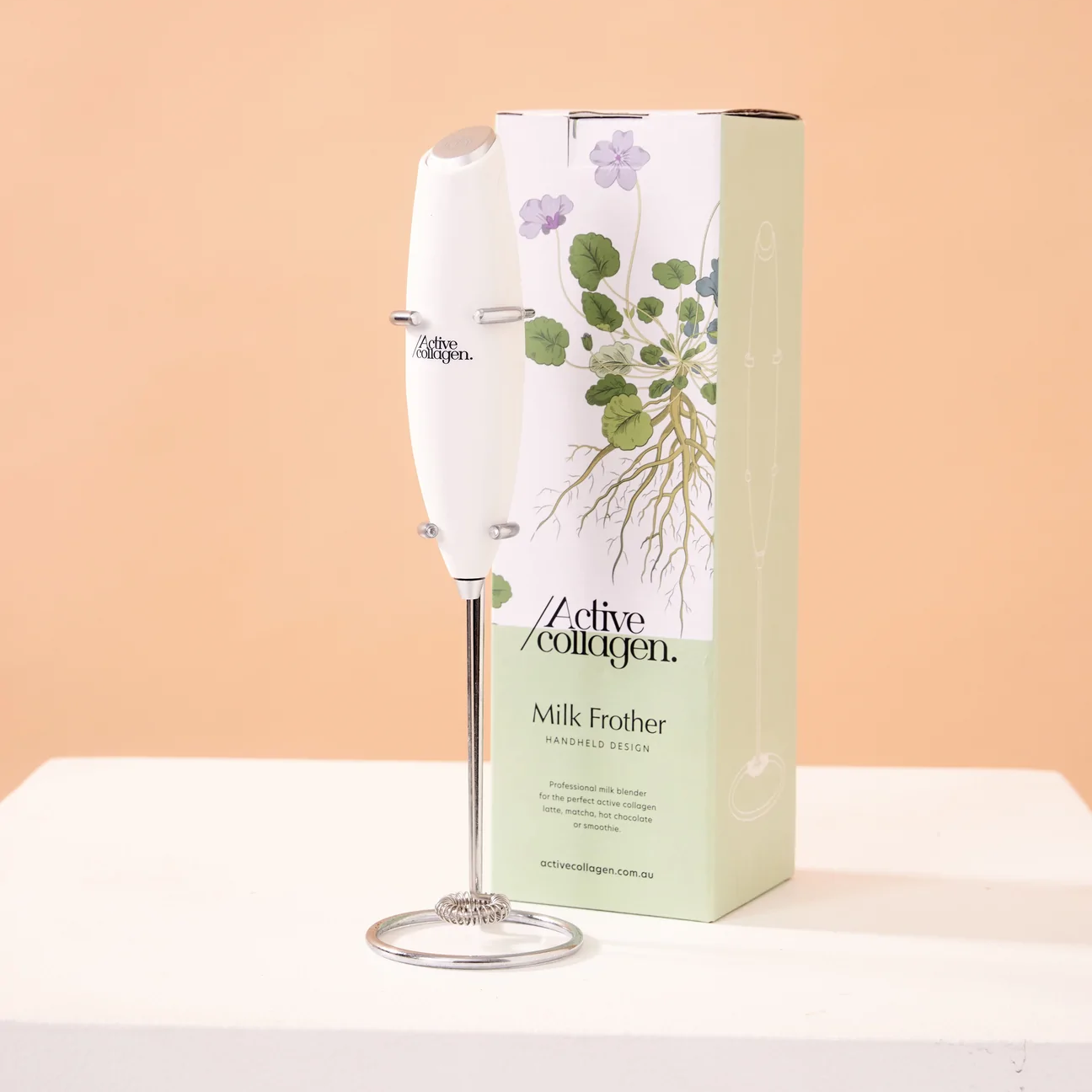Collagen is fast becoming one of the most talked about health products on the shelf, and for good reason. Backed by scientific research - and millions of health-conscious people - collagen peptides have known benefits for healthier skin, strong nails, gut health and bone strength. Out of all its benefits, collagen definitely receives its praise within the beauty space for its strong link to the regeneration of aging skin.
However, collagen shouldn’t be deemed as just a fad as its importance in the body especially as we age is essential! Why, you ask? Let’s take a deep dive into collagen in the body.
What is Collagen?
Collagen is present in abundance throughout the body and is a major structural protein found in connective tissues such as the skin, tendons, bones and ligaments. Collagen itself is made up of many smaller protein molecules called amino acids that when joined together resemble the shape of a rope or three chains wrapped around each other. This rope is incredibly strong and flexible. Collagen is quite literally the glue that holds us together.
In the skin, collagen functions to maintain structure and retain water which keeps it looking young, voluminous and strong. Whereas in bone, collagen is laid down by osteoblasts – bone building cells - in an array similar to plywood to hold strength. What can’t it do?!
Collagen is synthesised mainly by fibroblasts, another cell within connective tissue. Here the different amino acids undergo many steps by certain enzymes to build collagen chains. Although, the presence of vitamin C is also needed for collagen synthesis and has been found to stimulate collagen production especially within the skin.
In wholefood form, collagen is found in red meat, eggs, pork skin, fish – yay for crispy salmon skin – and soft fish bones, sausages, chicken skin, bone broths and gelatine. In supplement form, also known as hydrolysed collagen, collagen is made from either bovine or marine bones and connective tissues. Collagen is released from the biproducts of these animals through boiling and evaporation to produce collagen powder. The hydrolysed collagen powders – most collagen peptides – are rich in amino acids which are easily digestible and utilized by the body.
Why do we lose it?
Naturally as we age collagen levels decrease in the body through lack of regeneration. The loss of collagen is due to both intrinsic aging such as unavoidable biological processes and extrinsic aging such as long-term external factors.
Intrinsic aging is the ongoing physiological changes that occur over our life - aka wrinkles. The skin is one of the biggest concerns for people regarding collagen regeneration as it is usually one of the first visible signs of aging. Most areas of the skin that aren’t exposed to UV rays are photoprotected, such as the inner arm, and age intrinsically due to genetic, metabolic and natural factors. Aging photoprotected skin has reduced collagen fibres mostly due to fewer fibroblast cells, thinning of the epidermis and in turn influences our skins water retaining ability.
Extrinsic aging is largely put down to UV exposure, alongside environmental pollution, poor diet/deficiencies and smoking. Extrinsic skin aging from sun exposure is known as photoaging and is the main culprit in skin aging. In photoaged skin, several studies have found that collagen degradation increases. This contributes to a weakened dermis-epidermis connection which forms wrinkles. In accordance with diet, one low in vitamin C is a risk factor for poor collagen synthesis due to its vital role as a cofactor and an antioxidant. Likewise, smoking is detrimental to collagen regeneration. One study found that synthesis rates of collagen in smokers were 18-22% lower than that of non-smokers.
Does inflammaging ring a bell? Inflammaging is a term coined within the last 20 years describing low-grade chronic inflammation that can occur during both intrinsic and extrinsic aging. Inflammation and a build-up of reactive oxygen species (ROS)– cells that can cause biological damage – over time decrease both amounts and function of fibroblasts in aging skin therefore regeneration of collagen is compromised. ROS are obtained through lifestyle factors such as smoking, refined sugar consumption, continuous exposure to air pollutants and UV rays.
Some lifestyle changes worth considering:
- Quit smoking
- Minimize refined sugars
- Sun protection
- Addressing nutrient deficiencies
What type of Collagen should I take?
There are around 28 different forms of collagen that can be grouped according to the structure that they form. In the human body the most common is type I, although types I through IV are present. Collagens type I and III are found abundantly in bovine sources and are most effective for skin and bone health.
When choosing a collagen powder there are a few things to consider.
Vitamin C – supplements with added vitamin C or ascorbic acid will benefit the proper active synthesis and maintenance of collagen
Amount of collagen per serve – look out for a supplement with at least 2.5-5g of collagen per serve. Trials and studies have shown that 2.5-15g of collagen per day has proven benefits.
Vegan collagen – Unfortunately, most vegan collagens marketed as collagen only contain the micronutrients that can be beneficial for the production of collagen. So don’t be fooled!
Here at Active Collagen our All-In-One Hair Skin Nails contains vitamin C and bovine VerisolÒ Collagen Peptides which scientifically targets lush hair. Added biotin and silica also support the natural growth of hair and nails. Plus, it packs 5g of collagen per 5.8g scoop so it really is a competitive product!
Zhang, S., & Duan, E. (2018). Fighting against Skin Aging: The Way from Bench to Bedside. Cell transplantation, 27(5), 729–738. https://doi.org/10.1177/0963689717725755
Bolke, L., Schlippe, G., Gerß, J., & Voss, W. (2019). A Collagen Supplement Improves Skin Hydration, Elasticity, Roughness, and Density: Results of a Randomized, Placebo-Controlled, Blind Study. Nutrients, 11(10), 2494. https://doi.org/10.3390/nu11102494
Wu, M., Cronin, K., & Crane, J. S. (2022). Biochemistry, Collagen Synthesis. In StatPearls. StatPearls Publishing. https://pubmed.ncbi.nlm.nih.gov/29939531/
Clarke B. (2008). Normal bone anatomy and physiology. Clinical journal of the American Society of Nephrology : CJASN, 3 Suppl 3(Suppl 3), S131–S139. https://doi.org/10.2215/CJN.04151206
Gref, R., Deloménie, C., Maksimenko, A., Gouadon, E., Percoco, G., Lati, E., Desmaële, D., Zouhiri, F., & Couvreur, P. (2020). Vitamin C-squalene bioconjugate promotes epidermal thickening and collagen production in human skin. Scientific reports, 10(1), 16883. https://doi.org/10.1038/s41598-020-72704-1
Knuutinen, A., Kokkonen, N., Risteli, J., Vähäkangas, K., Kallioinen, M., Salo, T., Sorsa, T., & Oikarinen, A. (2002). Smoking affects collagen synthesis and extracellular matrix turnover in human skin. The British journal of dermatology, 146(4), 588–594. https://doi.org/10.1046/j.1365-2133.2002.04694.x
Zhuang, Y., & Lyga, J. (2014). Inflammaging in skin and other tissues - the roles of complement system and macrophage. Inflammation & allergy drug targets, 13(3), 153–161. https://doi.org/10.2174/1871528113666140522112003
Paul, C., Leser, S., & Oesser, S. (2019). Significant Amounts of Functional Collagen Peptides Can Be Incorporated in the Diet While Maintaining Indispensable Amino Acid Balance. Nutrients, 11(5), 1079. https://doi.org/10.3390/nu11051079
Lupu, M. A., Gradisteanu Pircalabioru, G., Chifiriuc, M. C., Albulescu, R., & Tanase, C. (2020). Beneficial effects of food supplements based on hydrolyzed collagen for skin care (Review). Experimental and therapeutic medicine, 20(1), 12–17. https://doi.org/10.3892/etm.2019.8342
Ricard-Blum S. (2011). The collagen family. Cold Spring Harbor perspectives in biology, 3(1), a004978. https://doi.org/10.1101/cshperspect.a004978




